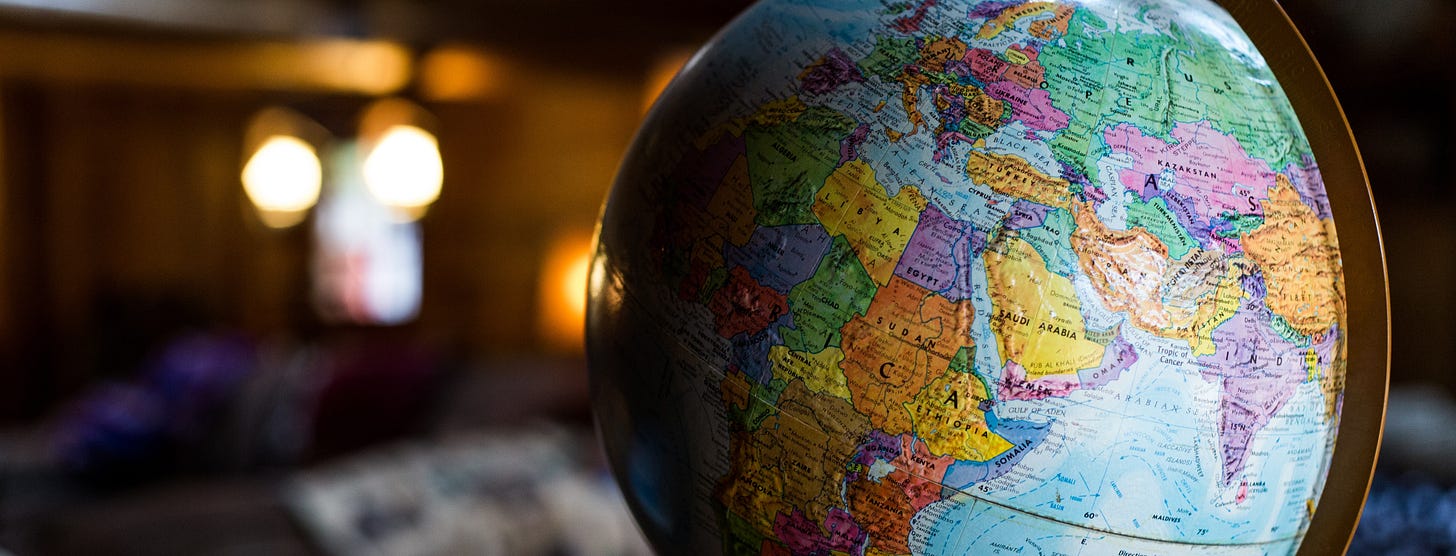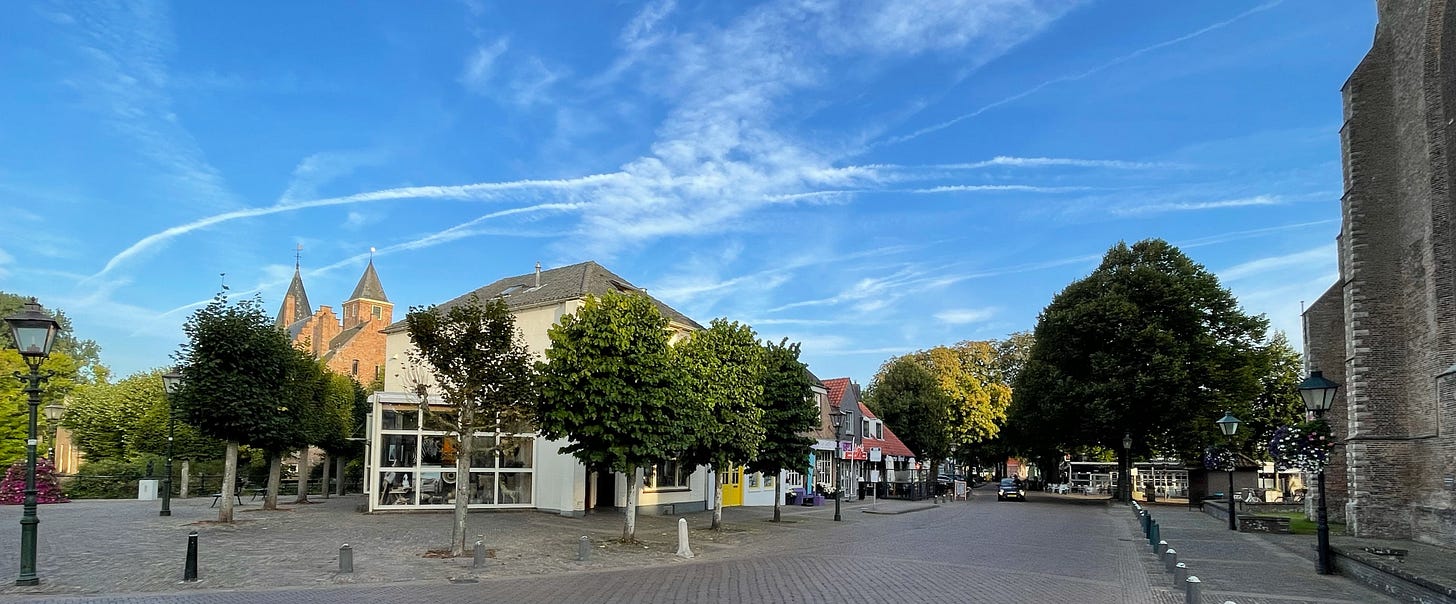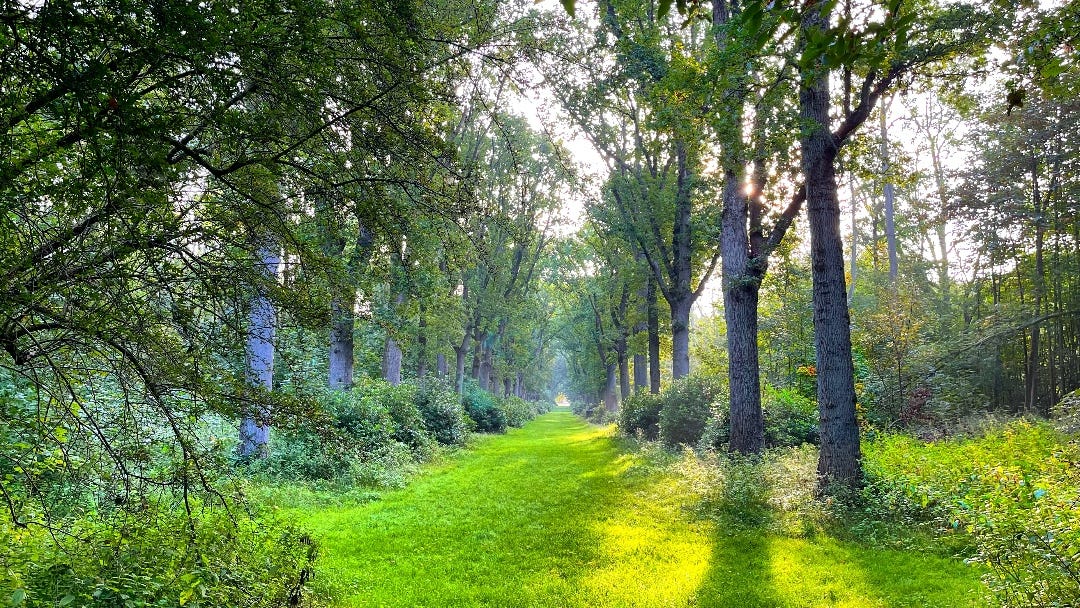UN Secretary-General warns: "We face the greatest cascade of crises in our lifetime."
World leaders gathered at the U.N. General Assembly, where the climate crisis and other 'Great Divides' are on the agenda.
I have long been called an alarmist for my warnings about climate change, and I still consider that an honorary title. It is a memory from many years ago when climate change was still a fringe issue in diplomacy but already recognized as a real threat by climate scientists and those that listened to them.
These days, it's only the odd one out who is not alarmed. Especially the younger generation doesn't need to be convinced of the seriousness of our global challenges. I recently wrote about their growing climate anxiety.
Unfortunately, being alarmed doesn't always lead to concrete action. You may remember the days, some twenty years ago, that most of us finally realized that smoking does indeed cause cancer but that the governments had still not taken action against smoking in cafes, offices, or other public places. Nowadays, nobody can ignore the daily news about the latest extreme weather disaster or the latest scientific report about the climate crisis. However, our leaders still don't treat this existential threat as a crisis.
Antonio Guterres rings the alarm bells
Yesterday, The alarm bells rang at the world's highest levels during the opening of the U.N. General Assembly's annual high-level meeting for leaders of its 193 member nations. U.N. Secretary-General Antonio Guterres warned in his state of the world speech:
"I am here to sound the alarm: The world must wake up. We are on the edge of an abyss and moving in the wrong direction."
He pointed to the COVID-19 pandemic, the climate emergency, and upheaval in Afghanistan, Ethiopia, Yemen, and other countries. Guterres called the fact that most wealthier countries are vaccinated, while more than 90 percent of Africans are still awaiting their first dose, a moral indictment of the state of our world and an obscenity.
The U.N. chief spoke about the surge of mistrust and misinformation that polarise people and paralyze societies while human rights are under fire. Science is under assault. And economic lifelines for the most vulnerable are coming too little and too late if they come at all. He also warned that people risk losing faith in their governments and U.N. values such as peace, human rights, dignity for all, equality, justice, and solidarity.
COP 26
Speaking about COP26, the U.N. climate conference that will start at the end of this month in Glasgow, Guterres stressed the need to bridging trust between the North and South. That asks for more ambition in the critical areas of mitigation, finance, and adaptation, which includes committing to carbon neutrality by 2050, and providing the $100 billion each year that countries promised a decade ago to support developing nations. He summarized it as:
"We are weeks away from the U.N. Climate Conference in Glasgow, but seemingly light-years away from reaching our targets,"
He urged governments to shift to the green economy by taxing carbon, ending subsidies to fossil fuels, and committing to no new coal power plants.
"This is a planetary emergency. We need coalitions of solidarity between countries that still depend heavily on coal and countries that have the financial and technical resources to support their transition. We have the opportunity and obligation to act."
You can read his full speech here, but if you don't have the time, it is good to know that he structured it around six "Great Divides," or the "Six Grand Canyons," that we must bridge:
Promote peace and end conflicts.
Restore trust between the more prosperous north and developing south on tackling global warming.
Reduce the gap between rich and poor.
Promote gender equality.
Ensure that the half of humanity that has no access to the Internet is connected by 2030.
Tackle the generational divide by giving young people a seat at the table.
We need cooperation, dialogue, and understanding
The last quote that I want to share is where he spoke about the U.S. and China, without mentioning the countries by name:
"It will be impossible to address dramatic economic and development challenges while the world's two largest economies are at odds with each other.
Yet I fear our world is creeping towards two different sets of economic, trade, financial, and technology rules, two divergent approaches in the development of artificial intelligence — and ultimately the risk of two different military and geopolitical strategies, and this is a recipe for trouble. It would be far less predictable than the Cold War.
To restore trust and inspire hope, we need cooperation. We need dialogue. We need understanding."
Wednesday’s photo
But it is Wednesday, the day that I would not write and only share a picture.
While the world gets increasingly divided and is getting hotter, and ultra-rich people enjoy useless space trips while looking down at a planet where people starve of hunger. And while the Taliban government in Afghanistan denies girls access to proper education, and while many world leaders still sleep in NYC for their next day at the UNGA, I just walked through my quiet village in the early morning.
The climate may change, but that reality is briefly far away at the start of a lovely first day of autumn. This village is so peaceful. I saw only two people on their bikes and a few horses running in a field. Time seems to move slower in Burgh-Haamstede; living here sometimes feels like an escape from the brutal reality of the real world. I can't deny that I love this escapism. I have been alarmed for so many years, and I am even getting more alarmed; I, therefore, need these quiet moments on this island to remind myself of what's at stake. It inspires and gives hope for a better future, one of cooperation and belief in possibilities, where science is respected, a future full of hope, and leaders leading with urgent transformational measures to achieve a long-term vision for a better future for the people.
This was my long introduction for my Wednesday photo; I will just add six pictures that I took during my morning walk a few hours ago, while my readers in Europe and Africa just woke up and those in America were still sound asleep.
I write this newsletter because I believe that together we can do better on this beautiful but fragile planet.
This newsletter is and will remain an independent production. Accordingly, I have never accepted any advertising offers. I also aim to make as many editions as possible available for free.
Support from those who can afford it makes this independent newsletter available to all. You can join this initiative by taking a paid subscription.
If the cost of this newsletter ($6/month, $60/year) would create any financial strain, please stay on the free list; I value all readers.
Notes:
https://www.un.org/sg/en/node/259241
https://mainichi.jp/english/articles/20210922/p2g/00m/0in/006000c
https://www.independent.ie/world-news/north-america/were-on-the-edge-of-an-abyss-un-secretary-general-warns-as-world-faces-greatest-cascade-of-crises-in-our-lifetime-40875148.html
https://www.independent.co.uk/news/united-nations-antonio-guterres-internet-covid-ethiopia-b1924125.html
Photo of the globe by Kyle Glenn on Unsplash
d












This is why I support ‘the Planet’👍😀😰🙏👷😅🛠
Nice, peaceful, and at the same time concerned edition of ‘The Planet’. Compliments